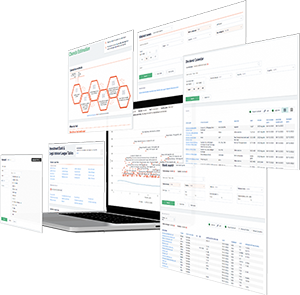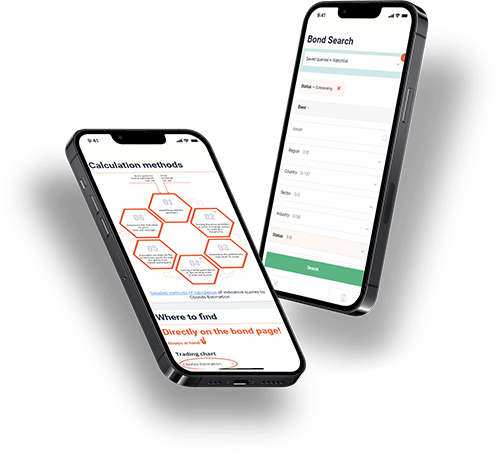By Irina Balalaeva, International Fixed Income Group of Cbonds
Updated March 31, 2024
What is a Stock Broker?
A stock broker is a professional in the financial industry who serves as an intermediary between investors and the stock market. Stock brokers facilitate the buying and selling of stocks and other securities on behalf of their clients. They play a crucial role in helping individuals and institutional clients access trading platforms and make informed investment decisions. Their responsibilities include providing investment advice, executing trades, managing investment accounts, and ensuring clients’ financial goals align with their investment strategies. To become a stockbroker, individuals must pass regulatory exams, such as the General Securities Representative Exam, acquire a license, and may hold professional certifications like the Chartered Financial Analyst (CFA) designation.

The role of a Stock Broker
Access to major exchanges like the New York Stock Exchange (NYSE) or NASDAQ is essential to engage in stock trading. To participate in trading on these exchanges, individuals must either be members of the exchange themselves or be associated with a member firm. Member firms, along with many of their employees, are authorized as brokers or broker-dealers by the Financial Industry Regulatory Authority (FINRA).
In the past, entering the stock market was financially daunting. It was considered cost-effective primarily for wealthy investors or large institutional players, such as pension fund managers. They typically employed full-service brokers and were willing to pay substantial fees for trade execution.
Although individual investors could directly purchase shares from issuing companies, working with a stockbroker was generally more straightforward.
However, the advent of the internet and advancements in technology transformed the landscape by enabling discount brokers to offer online services that were cost-effective, swift, and automated, granting easy access to the markets. More recently, apps like Robinhood and SoFi have specifically catered to micro-investors, facilitating fractional share purchases. Today, the majority of accounts in the markets are self-managed by account owners and held with discount brokers.
Requirements for Stock Brokers
Education
- Bachelor’s Degree. A bachelor’s degree in finance or business administration is typically required for aspiring stockbrokers. These fields of study provide a solid educational background in the financial industry and business practices.
- Financial Knowledge. Stockbrokers must possess a strong understanding of various financial concepts and areas. This includes knowledge of financial laws and regulations, accounting methods, principles of economics and currency markets organization, financial planning, and financial forecasting. This knowledge is critical for making informed investment decisions and providing valuable advice to clients.
- Global Credentials. To distinguish themselves in the competitive world of stock brokerage, many professionals pursue global credentials. These certifications serve as signals of legitimacy and financial acumen. Examples of such credentials include Certified Financial Planner (CFP) or Chartered Financial Analyst (CFA).
Licensing
- United States. In the U.S., registered stockbrokers must meet specific licensing requirements. They are required to hold the FINRA (Financial Industry Regulatory Authority) Series 7 and Series 63 or Series 66 licenses. These licenses demonstrate their proficiency in securities trading and understanding of state and federal securities regulations. Additionally, they must be sponsored by a registered investment firm. Floor brokers, who work directly on stock exchange floors, are also required to be members of the stock exchange where they operate.
- Canada. A brokerage firm should currently employ aspiring stockbrokers in Canada. They are required to complete a series of qualifications, including the Canadian Securities Course (CSC), Conduct and Practices Handbook (CPH), and the 90-day Investment Advisor Training Program (IATP). These qualifications equip them with the necessary knowledge and skills to operate in the Canadian financial markets.
- Hong Kong. In Hong Kong, individuals looking to become stockbrokers must work for a licensed brokerage firm. They are required to pass three examinations administered by the Hong Kong Securities Institute (HKSI). After passing these exams, candidates still need approval from the financial regulatory body to obtain their licenses, ensuring that they meet the regulatory standards.
- Singapore. Becoming a trading representative in Singapore involves passing four exams: Modules 1A, 5, 6, and 6A. The Institute of Banking and Finance administers these exams. Licensing authority in Singapore is overseen by the Monetary Authority of Singapore (MAS) and the Singapore Exchange (SGX). These regulatory bodies ensure that stockbrokers have the necessary knowledge and skills to operate in the Singaporean financial market.
- United Kingdom. Stockbroking in the United Kingdom is subject to rigorous regulation. Stockbrokers must achieve qualifications from the Financial Conduct Authority (FCA), which oversees the financial industry. The specific qualifications required can vary based on the duties and responsibilities of the stockbroker and their employer. This regulatory approach ensures that stockbrokers in the UK are well-qualified and capable of meeting the industry’s high standards.
Discount vs. Full-Service Broker
Discount Broker
Traditionally, discount brokers primarily focused on executing trades on behalf of their customers. Their primary function was to buy and sell securities in the stock market as per their clients’ instructions. Discount brokers were known for their cost-effective approach to trading.
Full-Service Broker
In contrast, full-service brokers provided a comprehensive suite of financial services that extended well beyond mere trade execution. They offered a broader breadth of financial services, including:
- Research. Full-service brokers provide in-depth market research, analysis, and insights to help clients make informed investment decisions. They offered access to valuable resources and expert opinions to assist clients in building and managing their investment portfolios.
- Advice. Full-service brokers offered personalized financial advice tailored to individual client goals and risk tolerances. They guided investment strategies, asset allocation, and other financial planning aspects.
- Portfolio Management. Full-service brokers often manage clients’ investment portfolios actively. They made investment decisions on behalf of clients, regularly adjusting holdings to align with financial goals and market conditions.
- Additional Financial Services. These brokers could assist clients with various financial needs, such as retirement planning, estate planning, and tax strategies. They acted as comprehensive financial advisors.
However, in today’s landscape, the distinction between discount and full-service brokers has blurred significantly. This transformation is primarily due to online brokerages driving trading commissions down to zero. Discount brokers have adapted to the changing environment by enhancing their services. They now offer research and advisory services in addition to pure trade execution, bridging the gap with traditional full-service brokers.
How to find a broker
-
Online Broker Selection. Begin your search by identifying an online broker that aligns with your investment goals and preferences.
-
Consider Cost Factors. Evaluate the cost structure of potential brokers. Look for discount brokers that impose a low minimum investment requirement and do not charge ongoing account fees. This cost-efficient approach can help you maximize your investment returns.
-
Educational Resources. If you are new to investing or seeking to expand your knowledge, consider selecting an online broker that offers educational resources. Many online brokers maintain libraries of how-to content on their websites. These resources can be invaluable in helping you get started and make informed investment decisions.
-
Opening a Brokerage Account. Once you’ve chosen a broker that suits your needs, you will need to open a brokerage account. This account is essential for buying or selling stocks and other investments, including mutual funds. The process of opening a brokerage account is typically straightforward and can be completed online in a matter of minutes. Your chosen broker will guide you through this process, ensuring that you meet all the necessary requirements and understand the account’s terms and conditions. This step is essential in establishing your presence in the financial markets.
Bond Screener
Watchlist
Excel Add-in
API









